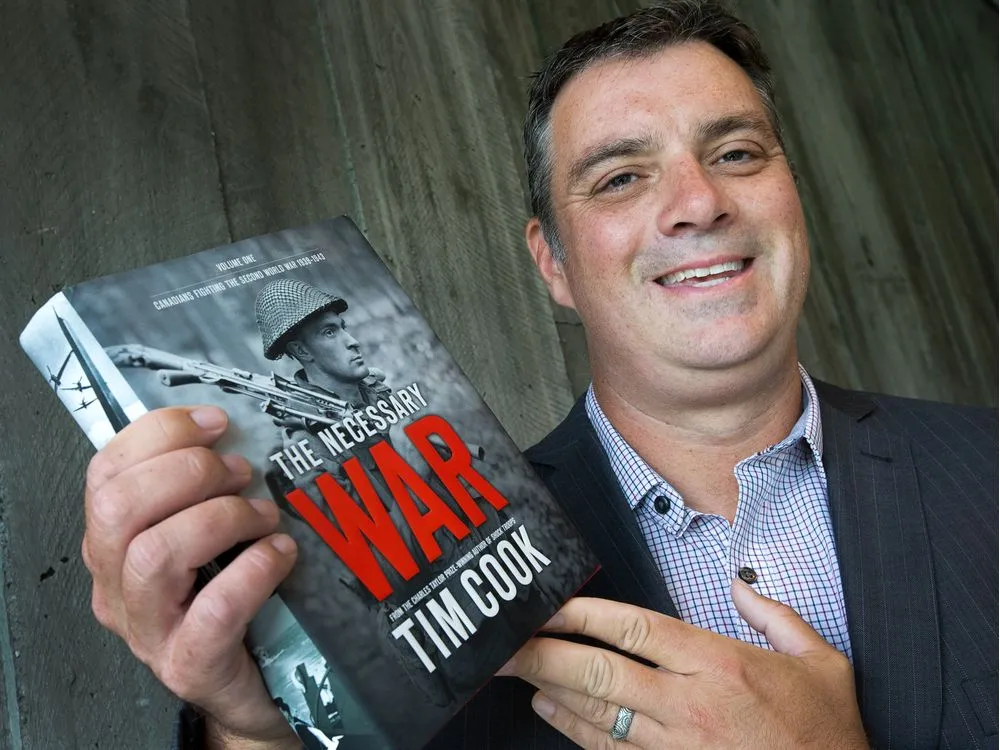Esteemed military historian, Tim Cook, died on Sunday, October 26, 2025, at the age of 54. He served as chief historian at the Canadian War Museum and they announced his death. Following the untimely death of Tim Cook, the War Museum remembered his contributions to the institution over the past two decades. They credited the late historian with curating several impactful exhibitions, including Victory 1918 – The Last 100 Days, Communities at War and War and Medicine. Read to learn about Tim’s glorious life before his death.
Why did Tim Cook die at 54? What was the cause?
The Canadian War Museum announced the passing of its chief historian and director of research, Tim Cook, through an official statement on October 26, 2025. The museum’s president and CEO, Caroline Dromaguet, called Tim a “passionate ambassador” for the institution and Canadian military history, and praised his “enormous” contributions over more than two decades. They said they were “deeply saddened” to say a final goodbye to Tim. Although there is great curiosity about what may have caused the mishap, the war museum did not publicly reveal the cause of his death.
Canadian War Museum remembers Tim Cook’s contributions to the field of Canadian war history
Canadian War Museum officials recalled Tim Cook’s profound contributions to the institution since 2002 and to the public understanding of Canada’s military history over the past two decades. Tim brought to life a popular permanent exhibition, Gallery 2, For crown and countrywhich served as an important source of information for Canadian war history. Other major Tim Cook exhibitions included Victory 1918: The last 100 days, communities at war and war and medicine. In addition to the exhibitions, Tim also spearheaded the Museum’s oral history projects. In this regard, the statement said:
“He [Tim Cook] conceived and directed multiple major updates to the Museum’s galleries, research, publications, conferences, and international outreach. He was the Museum’s champion of In Their Own Voices, an oral history project collecting interviews from veterans and their loved ones.”
Tim Cook was also recognized for his extensive research and numerous award-winning books on the country’s wartime experiences, with a focus on both World Wars. He was an acclaimed author, publishing more than 19 books and receiving awards such as the Ottawa Book Award several times and the Charles Taylor Award for his book. shock troops. His research led to important historical findings, including the revelation in his book, Lifeguards and body snatchers. It involved the participation of Canadian doctors in a program that removed organs from deceased World War I soldiers without consent.

Tim Cook worked to educate the public about Canadian history in its most authentic form. He did not refrain from highlighting the lesser-known dark side of the nation. For his contributions, he was made a member of the Order of Canada and received the Governor General’s History Award. Tim Cook also worked for more than two decades as chief historian and director of research at the Canadian War Museum, where his impact was described as “enormous”. The Canadian War Museum called Tim a “passionate ambassador” for the institution and Canadian military history. They praised Tim and said:
“Tim Cook was a passionate ambassador for both the Museum and Canadian military history. He has always left his own mark on history.”

The statement ended with museum officials offering their sincere condolences to Tim’s family, friends, colleagues and numerous supporters. They also mentioned that a more formal opportunity to celebrate Tim Cook’s contributions will be shared through Canadian Museum channels in the near future.
We hope, historian, that Tim Cook’s loved ones find the strength to face the pain of his death.
Read also: What is the cause of Nick Mangold’s death at age 41? He had asked his fans for a kidney donor in recent days






